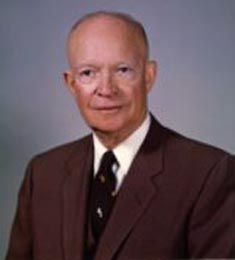US Commander of Strategic Air Forces in Europe and a firm advocate of strategic bombing, his first wartime orders were the establishment of the US Army Bomber Command (the nucleus of the US 8th Air Force) in England, which flew its first raids against marshalling yards outside Rouen in August 1942; appointed commander of the 8th Air Force in December, his formations continued to provide proof to critics (notably British Air Marshal Harris and Churchill) of the effectiveness of daylight precision bombing; this strategy was sanctioned by the Casablanca Conference (albeit as a complementary strategy fo Harris's night area-bombing rather that an alternative) and designated the Joint Bombing Offensive, also known as the Eaker Plan; promoted Lt General in June 1943, succeeded Air Marshal Tedder as C-in-C Mediterranean Allied Air Forces in 1944, and in August took command of Allied air forces for the invasion of southern France.
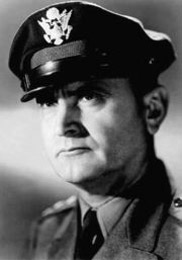
won the Military Cross for heroism in World War I; served as foreign secretary in 1935-38; resigned because of his disagreement with Neville Chamberlain on appeasement; an internationalist like Churchill, believed that the nations of Europe needed to confront Hitler, not appease him; when Churchill became prime minister, was recalled to government, first as dominions secretary, then as war secretary, and finally as foreign secretary; enjoyed Churchill's full confidence and harbored no illusions about Soviet ambitions in Eastern Europe; succeeded Churchill as prime minister in 1955 but served only 2 years before resigning in the wake of the Suez Crisis of 1956.
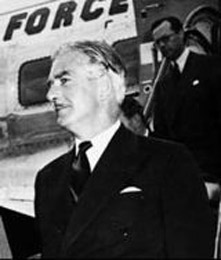
popular American commander who led many successful operations in the Pacific; Superintendent of West Point Military Academy at the time of Pearl Harbor, was appointed commanding general of the 77th Infantry Division in January 1942, and then commander of I Corps, whose staff he took to MacArthur's Southwest Pacific Area command in Australia in August of that year with orders to turn back the Japanese Papuan offensive; was the only senior US land commander in the Pacific able to maintain good relationships with his Australian colleagues, in sharp contrast to MacArthur; in December was sent to the Buna front in Papua to revitalize the stalled offensive, winning the first small but important victory against Japanese ground forces there before he took the US I Corps on throught New Guinea to the Huon peninsula and the to the US landings at Hollandia in April 1944; operating as the Operation Reckless Task Force, I Corps began a lightning campaign from Hollandia which secured a major base site for the support of subsequent Allied operations; commander of the newly formed 8th Army from September 1944, was responsible for all US forces in Dutch New Guinea, for the mounting of independent operations in the southern Philippines and for clearing-up operations on Leyte and later Luzon; after fighting in the Philippines ceased, he and his command supervised the surrender of over 50,000 Japanese troops from northern Luzon alone; after the Japanese surrender, commanded the first occupation forces in Japan and retired in 1948 as overall commander of Allied ground forces in the Japanese home islands.
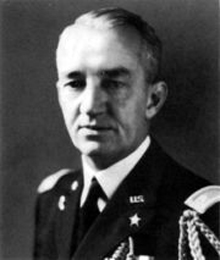
former laborer and traveling salesman rose throught the Nazi ranks to head the Gestapo Department for Jewish Affairs; known as a 'Jewish specialist; was responsible for the concentration camp deaths of millions of Jews; escaped an American internment camp after Germany's surrender and lived for many years in Argentina; was found by Israeli agents in 1960 and brought to trial for his war crimes; found guilty on all counts and was hanged on May 31, 1962.
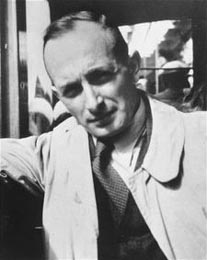
known as 'Ike'; chosen to command Operation 'Torch', the Allied invasion of North Africa in November 1942; led the polylgot British-US-French forc in completing the conquest of Tunisia and then directed the Allied invasions of the Italian island of Sicily and the Italian mainland at Salerno in 1943; appointed supreme Allied commander of Operation 'Overlord', the invasion of northern France, in December 1943; was chosen because of his ability to work harmoniously with diverse personalities; led the planning and execution of the Normandy invasion in June 1944; commanded US occupation forces in Germany; directed NATO forces in Europe in 1950-52; elected President of the United States in 1960 and served 2 terms.
